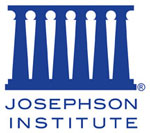INTRODUCTION (Please read).
I have been fascinated by the news and reactions to the revelations that since 2002, shortly after 9/11, the NSA has conducted extensive and increasingly sophisticated surveillance on the phones (and presumably other communications) of heads of state (and presumably other top government officials. I am struck by the lack of sophistication in the reactions and an unwillingness or inability to see the complexity of the issues and the predictable dramatic impact any decision taken by President Obama or his predecessor, President Bush national security and to trust of and credibility with both internal constituencies (people within the intelligence community)and external constituencies( the politicians, media and public of the U.S. and on the countries we subjected to secret surveillance).
I had the opportunity to conduct a full day intensive workshop with top CIA operatives and executives more than a decade ago and I became aware of the many very difficult ethical issues faced by the intelligence community and our leaders who decide what they can and cannot do.
I have my own opinion on the current scenario but I don't think it is as important as the opportunity to present you with some of the actual issues presented. One thing we must not underestimate is how important these decisions are.
Please respond to as many questions as you can as fully as you are willing. We will make the results of the survey public after we have enough responses. (Teachers: consider asking your students to answer these questions.)
Please forward this link to others who might find this interesting.
https://www.surveymonkey.com/s/SecretsandSurveillance
